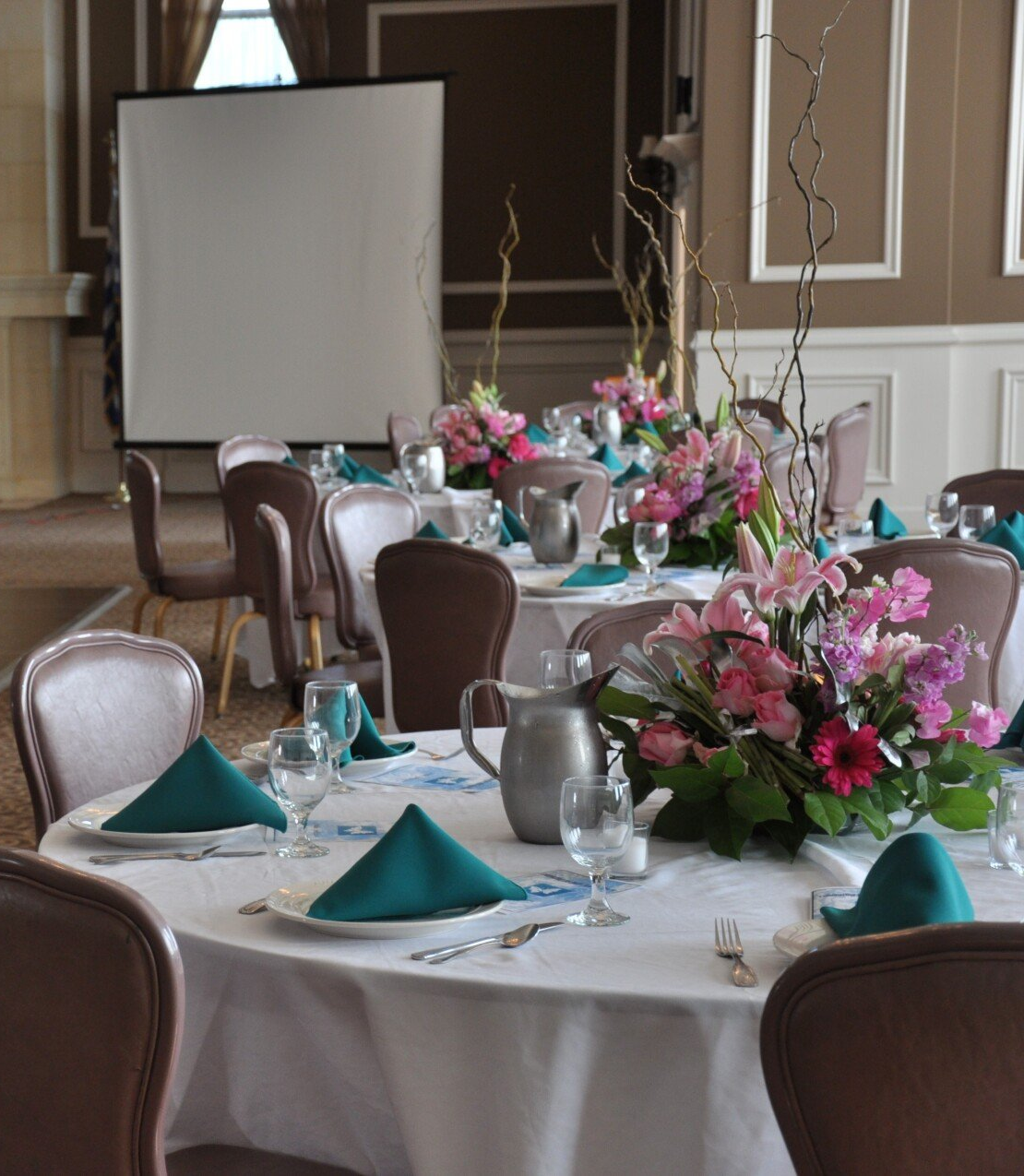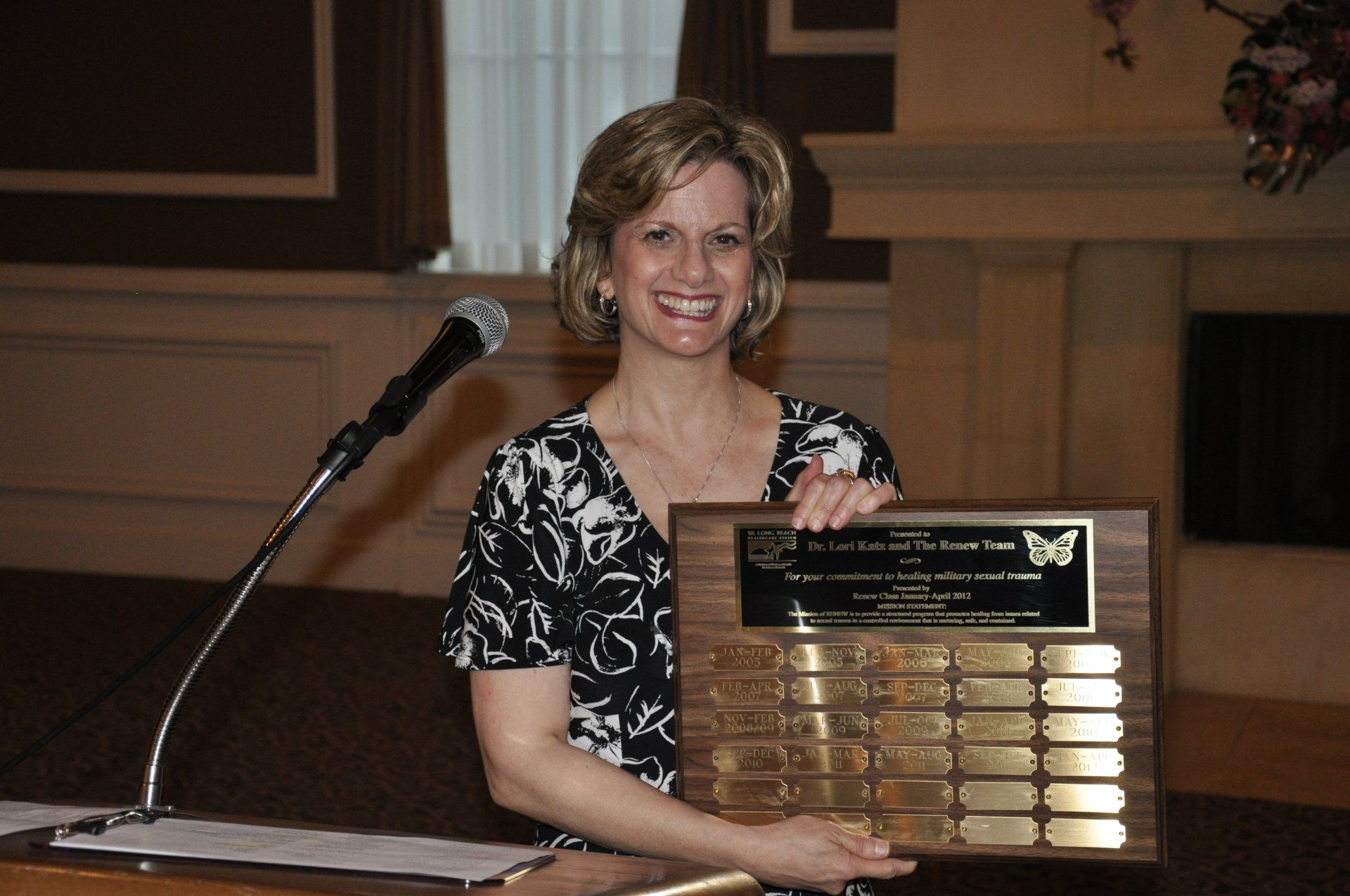What does your future look like
if you live from your past?
Overview
Warrior Renew (WR) is designed to address unique aspects of sexual trauma (ST) for Veterans and Active Duty service members who have incurred military sexual trauma (MST) as well as for those who have experienced single events or on-going trauma, multiple discrete events, and/ or sexual trauma across the life span (childhood through adulthood). It gives participants skills to manage trauma symptoms, and guides them towards resolving and releasing the past, with the inspiration to move forward in their lives in a meaningful way.
In addition, WR delves into interpersonal issues, where ST may have disrupted the ability to form secure relationships with others. By definition, ST is an interpersonal type of trauma, often characterized by betrayal, shame, and lack of support from others –leading to unrealistic self-blame, difficulty trusting others, and avoidance of emotional and physical intimacy.
Rather than focusing on a specific event of trauma, participants examine the total impact of living through events of trauma and how this has influenced relationships. Patterns in relationships are examined such as being neglected, rejected, trapped, or betrayed, as well as, personalized beliefs (e.g., examining meaning the experience has had for the participants such as feeling worthless, inadequate, or gullible), protective strategies to avoid distress, and compensating strategies to secure love, safety, attention, and acceptance.
Participants learn that living in a pattern of abuse and trauma has shaped their perceptions of self, others, and the world. However, trauma-based perceptions are distinct from one's true identity (e.g., the essence of who they are) and distinct from what is possible and who they can choose to be.
From the perspective of their current age and place in life, participants reexamine their lives as an objective observer, seeing context, and the role of others (e.g., perpetrators and bystanders). By seeing context, people can release self-blame and shame, and embrace positive factors such as seeing their younger self (and current self) as lovable and free.
How It Began
The original Renew program started at the VA in Long Beach, California, funded by a series of VA grants awarded to Lori S Katz, PhD who founded/directed the Women's Mental Health Center at the VA, and Diane West, RN, PhD who was the director of the women's program at US VETS in Long Beach. Through this partnership, homeless women veterans were able to obtain housing and case management at US VETS and get their clinical care at the VA.
Katz directed the clinical program at the VA as a 12-week Intensive Outpatient Program while West directed the supportive housing program at US VETS. VA programming included: dealing with trauma, coping with feelings, healthy relationships, addictions, self-care, journalling, yoga, and art. On Fridays, participants engaged in art therapy and recreational outings with US VETS.
These pictures were taken at the 20th cycle celebration in 2012. Thank you to the Assumption of the Blessed Virgin Mary Greek Orthodox Church of Long Beach, who generously supported the event by providing a lovely dinner party for 75 Renew graduates and 10 providers.
Veterans shared songs, poems, and personal stories of how their lives have changed as a result of Renew.
There were many tears and many hugs. It was a special night indeed.
Guiding Philosophy
The Warrior Renew program embraces the philosophy that everyone has natural instincts or “inner wisdom” that guides them towards health. The classes and activities teach participants to pay attention and identify how they feel, locate the roots of various feelings, discern between fears based on the past and what is present in the current situation, and to trust that they do know what is best for them. These approaches help people access and reunite with the part of them that is innately wise, intuitive, and supports positive change.
Change is about considering new meanings, and helping shore-up positive factors such as optimism, self-esteem, trust, self-compassion, connecting to community, and cultivating flexible creative thinking.
Topics Covered in Warrior Renew
The Warrior Renew treatment manual covers 12 topics:
- Understanding sexual trauma
- Coping with feelings
- Sleep (nightmares and getting a good night of sleep)
- Anxiety and triggers
- Anger and resentment
- Remember/understanding trauma
- Relationship patterns
- Self-blame, guilt, shame
- Losses and grief
- Healthy intimate relationships
- Effective communication skills
- Meaning, purpose and joy
Warrior Renew is NOT an exposure-based treatment. Participants do not share their stories nor will they be asked to listen to other people’s trauma stories. Instead, Warrior Renew focuses on empowering participants with understanding, skills, and
new ways to think about what has happened.
Theoretical Foundation
Cognitive-Experiential Self-Theory
Seymour Epstein, Ph.D. developed Cognitive-Experiential Self-theory (CEST) (Epstein, 1998, 2014) and it is the guiding theoretical foundation for Warrior Renew. In this model, Epstein demonstrates that we have two basic ways of processing information, the cognitive-rational system and the experiential system. The cognitive-rational system processes information in an intellectual way, while the experiential system processes information in an emotional way.
RATIONAL SYSTEM EXPERIENTIAL SYSTEM
Linear, sequential processing a + b + c Holistic processing/gut feelings
Analytical, abstract thoughts Associations and emotions
Processes words and numbers Processes metaphors, stories, imagery
Slow to process, quick to change Quick to process, slow to change
Requires justification, logic, evidence Self-evidently valid, know by experience
Trauma is an emotional experience and therefore, by activating the experiential system, information can be accessed about the trauma. Similarly, Epstein proposes that in order to affect permanent change, change needs to occur in the experiential system. This can be achieved either through new lived experiences or imaginal experiences (imagery).
Thus, Warrior Renew activates the experiential system in several ways: 1) Opening exercises (interactive games) help participants feel better, increases safety, builds a sense of community, and helps participants feel more present and “in their bodies” before learning the text, 2) class time itself is designed to be a healing experience including insights, discussions, imagery, and journaling, and 3) Relaxation activities are practiced in class so that participants can experience the neuro-emotional effects of “quieting the mind.”
Mechanisms for Change & Transformation
Cognitive Shifts
Cognitive shifts means seeing things in a new way to the extent that it changes how one thinks. Several techniques are used such as considering context, perspective-taking (past-present-future), using the observer vantage point, and reframing (shifting meaning about an event).
When someone is in the experience of trauma, they are in what is called the field vantage point. This means experiencing the event as if it is happening to them. This is a technique used in Exposure therapy. However, in Warrior Renew, we do NOT focus on reexperiencing. In contrast, we use the observer vantage point to think about things as an objective observer. From this vantage point you can see circumstances, other people and their agendas, and a more objective (and accurate) view of self. The observer vantage point is less emotionally and physically activating than the field vantage point. This can make it easier to see things that you cannot see when you are in it. Objectivity facilitates cognitive shifts.
Self-Compassion
Once cognitive shifts occur (understanding the past in a new way, and putting blame where blame is due), Warrior Renew uses the techniques of Holographic Reprocessing to offer compassion and healing to the younger self who experienced trauma. This is facilitated first by writing a letter to the younger self and then by imaginally revisiting the younger self. If you could meet her or him today, what would you tell her? What would you do? Participants are trained how to do this from the observer vantage point.
Attachment
Sexual trauma may disrupt healthy loving attachments to others. It can make people feel insecure and have difficulty trusting others. This among other reasons is why people tend to withdraw from social relationships, and feel particularly vulnerable in romantic/intimate relationships. Warrior Renew, is designed to be experienced with a group of other survivors. The shared validation, understanding, and affirmation helps build secure feelings and trusting of others.
We discuss healthy trust as a continuum, that builds over time and with shared experiences. It is not all or nothing, (as there is healthy skepticism, and healthy boundaries as well) but rather trust grows. In Warrior Renew, we engage in group activities for community building, and group discussion, and group relaxation/transformational experiences.
We acknowledge, that some people may worry about being in a group. First of all, we do not discuss trauma stories. Instead, think of it as taking a class with fellow students. Ironically, those who are most worried about being in a group, may also be the ones who end up loving the group experience the most! It is freeing to be in a supportive group, where participants can be real and understood.



